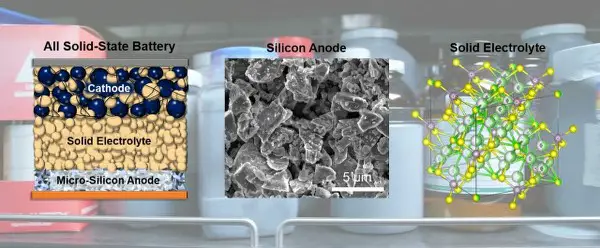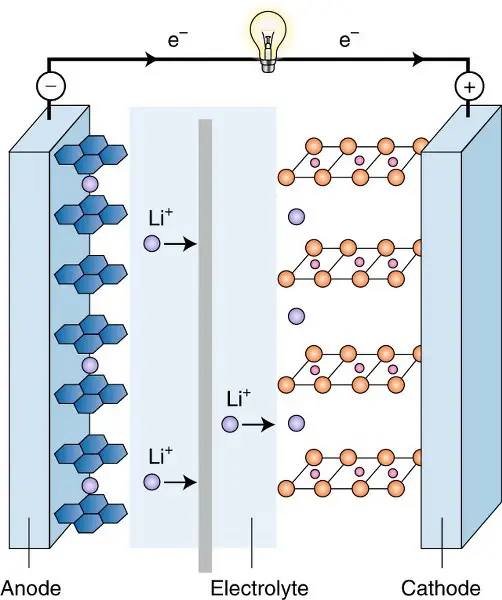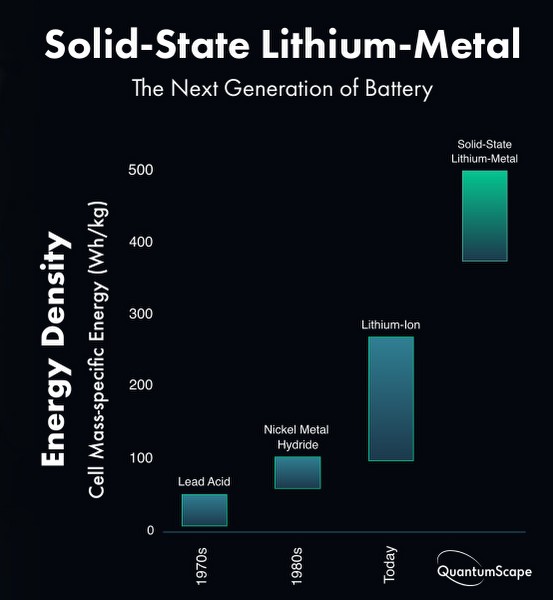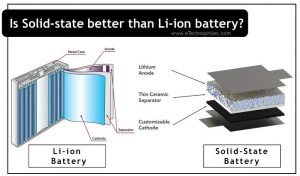Last updated on April 5th, 2024 at 11:31 am
Are Solid-state batteries better than Lithium-ion batteries? This is one of the most asked questions on the internet. Solid-state batteries are usually expected to perform better than lithium-ion batteries.
Solid-state batteries are considered to be the next-generation batteries. Hence they are designed to be an alternative to lithium-ion and other conventional batteries.
Although lithium-ion batteries are extensively used in current applications, solid-state batteries are appearing to be safer and more efficient. In this article, we will compare solid-state batteries and lithium-ion batteries and discuss them in detail.
Table of Contents
Are solid-state batteries better than Lithium-ion batteries? (Short answer)
Yes, solid-state batteries are far better than lithium-ion batteries in terms of safety, weight, size, energy density, applications, and thermal stability.
Solid-state batteries are more stable and smaller in size when compared to lithium-ion batteries. Hence they can be used in mobile power applications, boats, airplanes, and other electric vehicles. The major advantage of solid-state batteries is that they use solid electrolyte which is an inflammable component.
So they are less prone to catch fire and can be used in medical equipment like heart pacemakers and defibrillators. Solid-state batteries also have a longer lifespan than lithium-ion batteries. Thus, when considering all the factors, solid-state batteries are better than lithium-ion batteries.
Lithium-ion batteries are a popular choice for a number of applications such as cellphones, laptops, etc. because solid-state batteries are currently in the research and development stage.
Now let’s look at the differences between them in detail.
Solid-state battery
A solid-state battery is a battery technology that replaces the traditional lithium-ion batteries with a solid-state electrolyte which also acts as a separator. Instead of a carbon/silicon anode (used in traditional lithium-ion batteries), a lithium-metal anode is used in solid-state batteries.

The lithium metal anode has more energy density than traditional anodes, thus the battery stores higher energy within the same volume. The industrial machinery sector and the electric vehicle sector are closely looking for their development and arrival.
Lithium-ion battery

The lithium-ion battery is a type of rechargeable battery in which lithium ions travels between electrodes. Lithium-ion batteries have an anode, cathode, separator, and electrolyte. The separator keeps the cathode and anode apart, while the liquid electrolyte solution creates a conductive path for the ions to flow.
Li-ion batteries have higher damage chances such as fire explosion caused by temperature change or leakage produced by an external force since it uses liquid electrolyte solution.
Lithium-ion batteries are used in many products such as electronics, wireless headphones, small and large appliances, electric vehicles, and electrical energy storage systems.
What are the differences between Solid state and Li-ion batteries?

Compared to a traditional lithium-ion battery, solid-state battery technology has the potential to improve battery performance in terms of:
- the energy density (by replacing the carbon or silicon anode)
- fast charging (since it is resistant to high heat)
- longer life (solid electrolyte deteriorates slower than liquid electrolyte)
- increased safety (by eliminating the flammable organic porous separator and organic electrolyte material in lithium-ion batteries).
| Solid-state battery | Li-ion battery |
| It uses a solid electrolyte | It uses a liquid electrolyte |
| It has excellent thermal stability | It has poor thermal stability |
| It offers high energy density | Compared to the solid-state battery, it offers a lower energy density |
| It has high ionic conductivity over a broad range of temperature | It has high ionic conductivity only at room temperature |
| It uses non-volatile, non-flammable components as electrolytes, thus they are safe | It uses flammable components as electrolytes, which can cause fire and damage |
| Self-discharge (loss of charge per month) is lower | Self-discharge is comparatively higher and thus it reduces shelf-life |
| No SEI (Solid Electrolyte Interface) layer formation, thus possess a longer life cycle | SEI (Solid Electrolyte Interface) layer is present which affects its lifecycle |
| It is highly resistant to heat, thus fast charging is possible | The charging of Li-ion is slower comparatively |
| It has no structural limitations, it can be made into smaller, thinner, and so on. | Since it uses a liquid electrolyte, it has structural limitations due to liquid leakage, |
Which one is safer? (Solid-state or Li-ion)
Solid-state batteries are safer than lithium-ion batteries. Because solid-state batteries use solid electrolyte (non-flammable) while lithium-ion batteries use liquid electrolytes (flammable).
Liquid electrolytes have solvents that vaporize easily. i.e., they cannot withstand high-temperature environments.
Lithium-ion batteries get short-circuit easily because anode and cathode can come in direct contact through the liquid electrolyte. So it is necessary to use a separator in between them.
While solid-state batteries are difficult to short-circuit because the anode and cathode are separated by a solid, and can withstand higher temperatures because they use highly heat-resistant electrolytes. In this way, solid-state batteries are safer.
Why solid state batteries are not widely accepted?
Solid-state batteries are currently in the research and development stage. Many startups are working on solid-state battery development. Because finding a higher-performance solid electrolyte material still remains a difficult task. Now let’s look at the current challenges in the development of solid-state batteries:
- A battery’s electrodes and electrolytes need to be in close contact to function properly. But in a solid-state battery, it is difficult to maintain close contact since it contains a solid electrode on a solid electrolyte.
- Developing a solid electrode to store more power remains a challenging task.
- The manufacturing process of a solid-state battery differs from that of conventional battery technology. Therefore, adjusting to new technologies may take some time.
Several companies are actively working to develop solid-state batteries, which are expected to improve the performance of lithium-ion batteries. Lithium-ion batteries, on the other hand, are actively employed in a wide range of applications.
Conclusion
Lithium-ion batteries are reaching the limits of their possible energy density, and at the same time demand for more effective energy storage is increasing. Solid-state batteries can be designed to overcome the shortcomings of these traditional batteries and bring us into a new era of energy storage.
